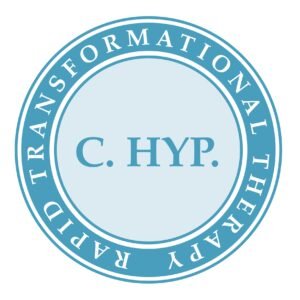Rapid Transformational Therapy
What is Hypnotherapy?
Hypnotherapy is a therapeutic technique that utilizes hypnosis to help individuals achieve a state of focused attention and heightened suggestibility. This practice aims to facilitate positive changes in thoughts, behaviours, and emotions, thereby promoting healing and personal growth. Although it may be associated with stage performances and entertainment, hypnotherapy is a legitimate therapeutic approach that has garnered recognition in various medical and psychological fields.
The origins of hypnotherapy date back to the ancient civilizations of Egypt and Greece, where trance-like states were used for healing purposes. It wasn’t until the late 18th century that hypnotherapy gained formal recognition, largely thanks to Franz Anton Mesmer, who introduced the concept of ‘animal magnetism.’ In the 19th century, individuals such as James Braid and Sigmund Freud further explored its potential, laying the groundwork for modern therapeutic applications.
Today, hypnotherapy is employed to address several mental health issues, including anxiety, phobias, and addictions. It is often used as a complementary treatment for various conditions, enabling individuals to access their subconscious mind and address deep-seated issues that may hinder their well-being. During a typical hypnotherapy session, a trained practitioner guides the individual into a relaxed state, often using techniques such as progressive relaxation or visualization. Once in this state, the individual is more open to suggestions, allowing the therapist to introduce beneficial changes in behaviour or mindset.
The effectiveness of hypnotherapy varies from person to person, emphasizing the need for a skilled practitioner and a collaborative approach. As awareness and understanding of hypnotherapy grow, it continues to establish itself as a valid and valuable option for those seeking therapeutic intervention.
Exploring RTT
Rapid hypnotherapy, sometimes called RTT (Rapid Transformational Therapy) is an innovative approach that seeks to facilitate effective therapeutic change within a condensed timeframe. This technique, which has gained traction in recent years, diverges from traditional hypnotherapy in several meaningful ways. Developed in response to the need for quicker results, rapid hypnotherapy utilizes specific strategies designed to engage clients more swiftly and efficiently during sessions. This form of hypnotherapy combines techniques from other types of therapy, including Neuro-Linguistic Programming (NLP), Cognitive Behavioural Therapy (CBT), and psychotherapy. RTT is solution-focused and aims to address the root causes of problems.
One of the distinguishing characteristics of rapid hypnotherapy is the use of a streamlined induction process. Unlike traditional methods, which may require lengthy preparatory procedures, rapid hypnotherapy aims to establish a hypnotic state almost instantaneously. By employing techniques such as rapid suggestion or shock induction, practitioners can facilitate access to the subconscious mind, allowing for immediate transformation of thoughts and behaviours. This approach is particularly appealing to individuals who may be seeking swift relief from various issues, such as anxiety, phobias, or unwanted habits.
The principles underpinning rapid hypnotherapy emphasize the importance of focused intention and clear communication. Practitioners maintain a client-centered approach, prioritizing collaboration and openness throughout the process. This dynamic fosters an environment where clients can feel safe and supported while rapidly exploring their inner landscapes. Additionally, rapid hypnotherapy often includes a strong follow-up component, ensuring that the beneficial changes are reinforced after the initial session.
Intended outcomes of rapid hypnotherapy often center around achieving quick, actionable solutions. Clients typically experience significant shifts more rapidly than with traditional methods, catering to those who require immediate assistance. As a result, rapid hypnotherapy presents itself as a versatile option for individuals looking to overcome various challenges efficiently, highlighting its growing prominence in modern therapeutic practices.
Key Differences Between Rapid Hypnotherapy and Traditional Hypnotherapy
Rapid hypnotherapy and traditional hypnotherapy fundamentally differ in their methodologies and outcomes, which shapes the client experience significantly. One of the most noticeable differences is session length. Traditional hypnotherapy often involves longer sessions that can last from an hour to two hours. In contrast, rapid hypnotherapy typically compresses its techniques into shorter sessions, frequently lasting between 20 to 30 minutes. This time efficiency appeals to many clients seeking quick resolutions to specific issues.
The approach to inducing hypnosis also diverges between the two practices. Traditional hypnotherapy often utilizes progressive relaxation techniques to facilitate the hypnotic state, allowing the client to unwind gradually into a deep trance. Meanwhile, rapid hypnotherapy employs more direct methods, including various techniques designed to swiftly alter consciousness and access the subconscious. This can create an engaging and focused experience, as clients may enter the hypnotic state almost immediately.
Another critical distinction lies in the depth of trance achieved. Traditional hypnotherapy may guide clients to a deeper level of trance, which enables exploration of complex issues over time. Conversely, rapid hypnotherapy aims for a lighter trance state that targets specific problems efficiently, allowing for quick adjustments and interventions within the session.
Moreover, the therapeutic goals can vary significantly. Traditional hypnotherapy aims to address deeper psychological issues and emotional traumas, often focusing on long-term change. In contrast, rapid hypnotherapy emphasizes immediate solutions and practical outcomes, typically addressing specific behavioral changes or phobias in a shorter timespan.
In terms of client experience, personal preferences play a key role. Clients who cherish a thorough, slow-paced therapeutic process may gravitate towards traditional hypnotherapy, while those seeking quick resolutions may prefer the rapid approach. Understanding these differences allows clients to make informed choices suited to their individual needs.
Online hypnotherapy can transform your life and get you where you want to be
What is hypnotherapy or RTT good for?
Addictions
Anger
Anxiety
Career
Childhood Problems
Compulsive Behaviour (OCD)
Confidence
Depression
Eating Issues
Emotional Blocks
Fears (Heights, Driving, Flying, Needles, Dentist, etc.)
Fertility
Guilt
Health Issues
Lack of Connection
Money Block/Issues
Motivation
Panic Attacks
Phobias
Procrastination
Premenstrual Mood Issues
PTSD
Relationships and sexual issues
Sleep Problems
Smoking
Sports Performance
Trauma, PTSD
Weight Control



